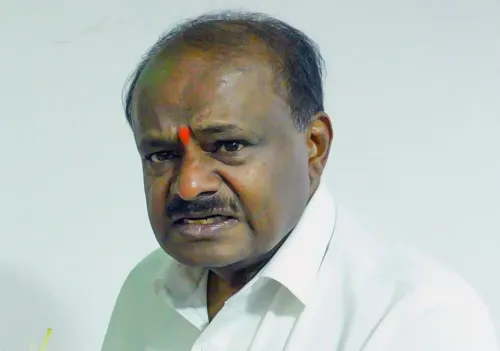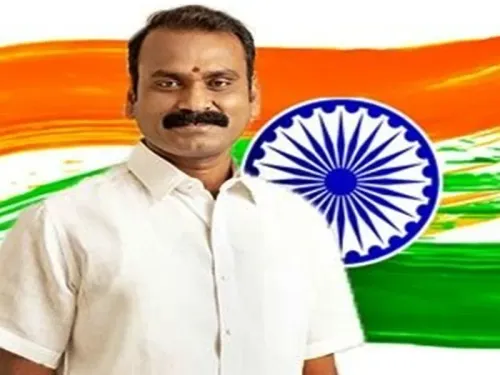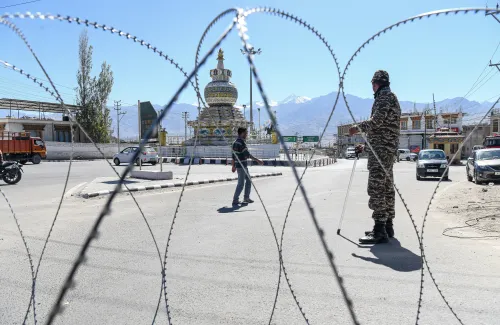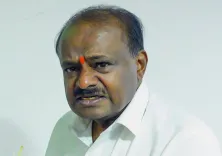Why are Political Leaders in Bihar Party-Hopping?
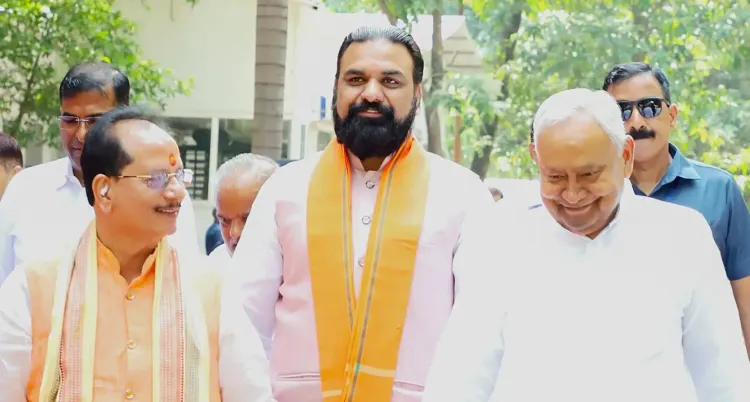
Synopsis
Key Takeaways
- Political leaders are switching parties in Bihar ahead of elections.
- Many seek comfortable victories or higher positions within their new parties.
- Party-hopping is a long-standing trend in Indian politics.
- Historical instances reveal a pattern of defections.
- The anti-defection law aims to regulate this behavior.
New Delhi, Oct 9 (NationPress) As Bihar prepares for its upcoming Assembly elections on November 6 and 11, there are reports indicating that political leaders are switching parties, likely seeking a more favorable path to victory or a boost in their party's leadership positions.
Rashtriya Janata Dal (RJD) MLA Bharat Bind, who was previously reported to have joined the Bharatiya Janata Party (BJP) earlier this year, has recently resigned from the state Assembly.
In the 2020 elections, Bind secured a win in Bihar's Bhabua Assembly constituency, defeating his closest competitor, Rinki Rani Pandey from the BJP, by over 10,000 votes.
During the 2015 Assembly elections, he contested from the same constituency under the Bahujan Samaj Party (BSP) banner and finished third, trailing behind candidates from the BJP and Janata Dal-United (JD-U).
Notably, in 2015, the JD-U was not allied with the BJP.
In a similar vein, Congress MLA Murari Prasad Gautam, who won against JD-U's Lalan Paswan by 18,000 votes in the Chenari Assembly seat during the 2020 state elections, has also resigned.
Paswan had previously won the seat in 2015 as a candidate from the Rashtriya Lok Samata Party (RLSP).
Former Union Minister Nagmani Kushwaha has established or changed nearly a dozen parties over the past 23 years.
The septuagenarian Dalit leader is accompanied by the sexagenarian Upendra Kushwaha, another former Union Minister who has shifted between various organizations multiple times.
Samrat Choudhary, the current Deputy Chief Minister of Bihar, has also been associated with the state's major political parties before aligning with the BJP.
While JD-U leader and Chief Minister Nitish Kumar has been dubbed "paltu ram" or the flip-flop man for his frequent changes in alliances, the late Ram Vilas Paswan was known for his ability to sense political trends and align with the winning faction.
Former Bihar Chief Minister Jitan Ram Manjhi has also experienced shifts in alliances over the past decade.
Party switching is not a new trend.
Back in 1967-68, a significant number of legislators in various states exhibited similar flip-flops.
Consequently, in 1969, the Y.B. Chavan Committee was commissioned to address the issue of defections.
There were approximately 540 instances of defections recorded between the first and fourth general elections (1951-1967).
This trend has also been observed among Independent candidates, particularly in cases of hung verdicts.
It has been noted that the temptation of material benefits and political positions significantly influences such defection decisions, often labeled as "horse trading".
The Constitution (Thirty-second Amendment) Bill, 1973, was introduced in the Lok Sabha on May 16, 1973, aiming to provide constitutional disqualifications for defections.
This bill was referred to a Joint Committee of Parliament, which became inactive due to the dissolution of the fifth Lok Sabha in 1977.
Another attempt was made with the Constitution (Forty-eighth Amendment) Bill, 1979, which was withdrawn due to opposition from both ruling and opposition members.
Following the 1984 general elections, another initiative through the Constitution (Fifty-second Amendment) Bill was introduced in the Lok Sabha, leading to the enactment of an anti-defection law in January 1985.
However, completely prohibiting the choice to join a political party is not feasible, given the democratic rights of individuals.
The phrase "Aya Ram, Gaya Ram" often illustrates the unpredictable movements of party-switchers.
In Haryana, Bhajan Lal was once dubbed the "master of horse-trading", renowned for his persuasive powers and alliance-building across party lines.
Some politicians from the state, like Hira Nand Arya and Gaya Lal, are still remembered for their notable political somersaults.
However, such political nomads are not confined to Indian politics alone; numerous instances exist in countries like Britain and Australia.

